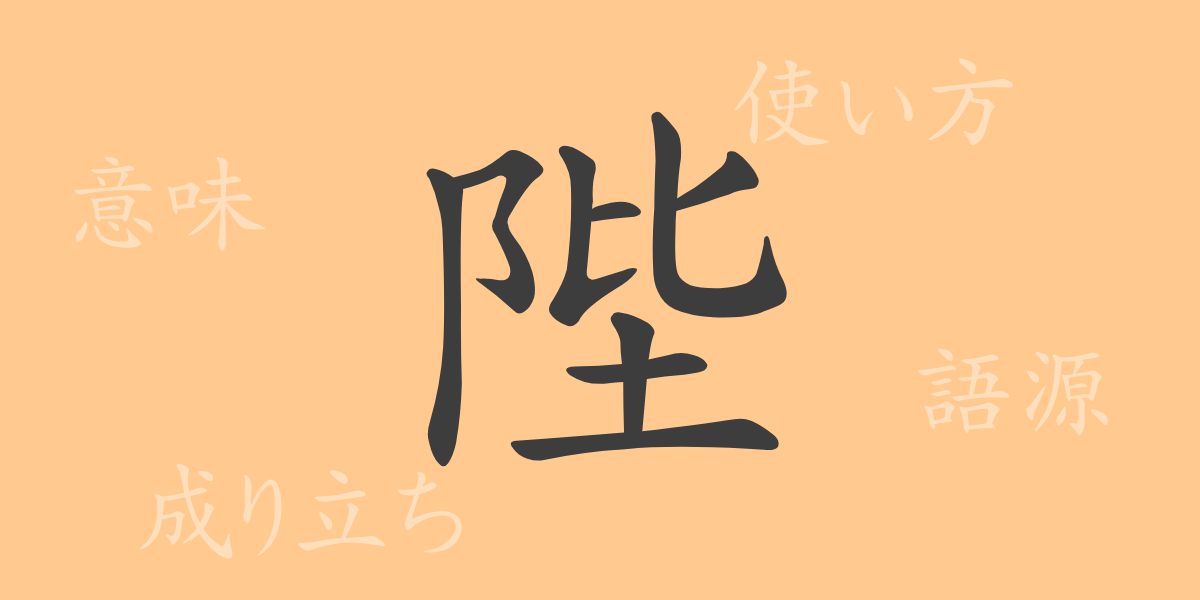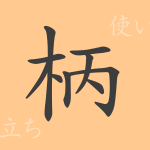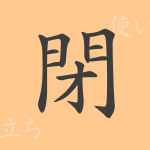In the Japanese language, there are numerous kanji characters that possess unique beauty and profound meanings. “陛” (hei) is one such character, occupying a special place in history and culture. This article delves deeply into the world of the kanji “陛” (hei), exploring its origins, meanings, uses, and even compound words. Let’s learn together about the rich history and culture embedded in this single kanji character.
The Origin of 陛 (hei)
The kanji “陛” (hei) is composed of “坔” (di), meaning ground, and “否” (pi), indicating below the stairs. Originally, it referred to the steps leading to a palace or a high place. Over time, it came to signify the steps descended by a noble person, essentially meaning “imperial steps.” Thus, “陛” (hei) became a kanji used to express respect for high-ranking individuals such as emperors and kings.
The Meaning and Usage of 陛 (hei)
The kanji “陛” (hei), evolving from the meaning of “imperial steps,” is used to express respect towards noble individuals like emperors or kings. Most commonly, it appears in the form “陛下” (heika), a respectful title for emperors, kings, queens, and other monarchs. Figuratively, it can also symbolize high status or authority.
Reading, Stroke Count, and Radical of 陛 (hei)
The kanji “陛” (hei) carries a deep historical significance in its form and meaning. Here are the basic details of this kanji:
- Reading: The On-yomi (音読み) is “ヘイ” (hei); there is no Kun-yomi (訓読み).
- Stroke count: It consists of 10 strokes.
- Radical: The radical of 陛 (hei) is “阜” (oka or gifu no hen).
Compound Words, Idioms, and Proverbs Using 陛 (hei)
Compound words and idioms containing “陛” (hei) often relate to respect and authority. Here are some examples:
- 陛下 (heika): A respectful title for emperors, kings, and other monarchs.
- 陛足 (heisoku): Refers to the arrival of a monarch or their foot.
- 陛見 (heiken): The act of having an audience with a monarch.
- 陛下万歳 (heika banzai): A phrase celebrating the long life of a monarch.
These compound words and idioms are primarily used to express respect towards monarchs or members of the royal family.
Summary of 陛 (hei)
We have seen that the kanji “陛” (hei) holds weight beyond being a mere character. From its origin, its use as a term of respect for monarchs, to the related compound words, this single character encapsulates Japan’s tradition and culture. Through this exploration, we hope you have gained an appreciation for the profound meaning of “陛” (hei). Let us continue to cherish the history and culture embedded in each kanji character.

























